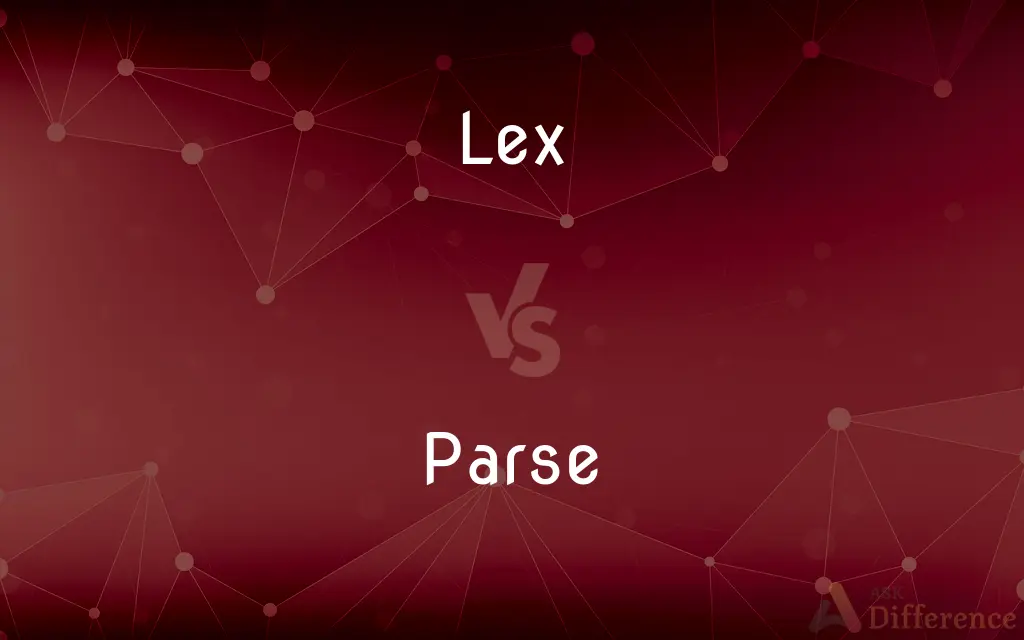Lex vs. Parse — What's the Difference?

Difference Between Lex and Parse
ADVERTISEMENT
Compare with Definitions
Lex
Law.
Parse
To break (a sentence) down into its component parts of speech with an explanation of the form, function, and syntactical relationship of each part.
Lex
(computing) To perform lexical analysis; to convert a character stream to a token stream as a preliminary to parsing.
Parse
To describe (a word) by stating its part of speech, form, and syntactical relationships in a sentence.
Lex
A specific inflected form of a word; compare lexeme.
ADVERTISEMENT
Parse
To process (linguistic data such as speech or written language) in real time as it is being spoken or read, in order to determine its linguistic structure and meaning.
Lex
Law; as, lex talionis, the law of retaliation; lex terræ, the law of the land; lex fori, the law of the forum or court; lex loci, the law of the place; lex mercatoria, the law or custom of merchants.
Parse
To examine closely or subject to detailed analysis, especially by breaking up into components
"What are we missing by parsing the behavior of chimpanzees into the conventional categories recognized largely from our own behavior?" (Stephen Jay Gould).
Parse
To make sense of; comprehend
I simply couldn't parse what you just said.
Parse
(Computers) To analyze or separate (input, for example) into more easily processed components.
Parse
To admit of being parsed
Sentences that do not parse easily.
Parse
To resolve (a sentence, etc.) into its elements, pointing out the several parts of speech, and their relation to each other by agreement or government; to analyze and describe grammatically.
Parse
(transitive) To examine closely; to scrutinize.
Parse
To split (a file or other input) into pieces of data that can be easily manipulated or stored.
Parse
To resolve (a string of code or text) into its elements to determine if it conforms to a particular grammar.
Parse
Of a string of code or text, sentence, etc.: to conform to rules of grammar, to be syntactically valid.
This sentence doesn't parse.
Parse
An act of parsing; a parsing.
The parse will fail if the program contains an unrecognised keyword.
Parse
The result of such an act; a parsing.
This parse is incorrect and indicates a fault in the parser.
Parse
To resolve into its elements, as a sentence, pointing out the several parts of speech, and their relation to each other by government or agreement; to analyze and describe grammatically.
Let him construe the letter into English, and parse it over perfectly.
Parse
Analyze syntactically by assigning a constituent structure to (a sentence)
Share Your Discovery

Previous Comparison
Contempt vs. Anger
Next Comparison
Ticker vs. Ticket













































